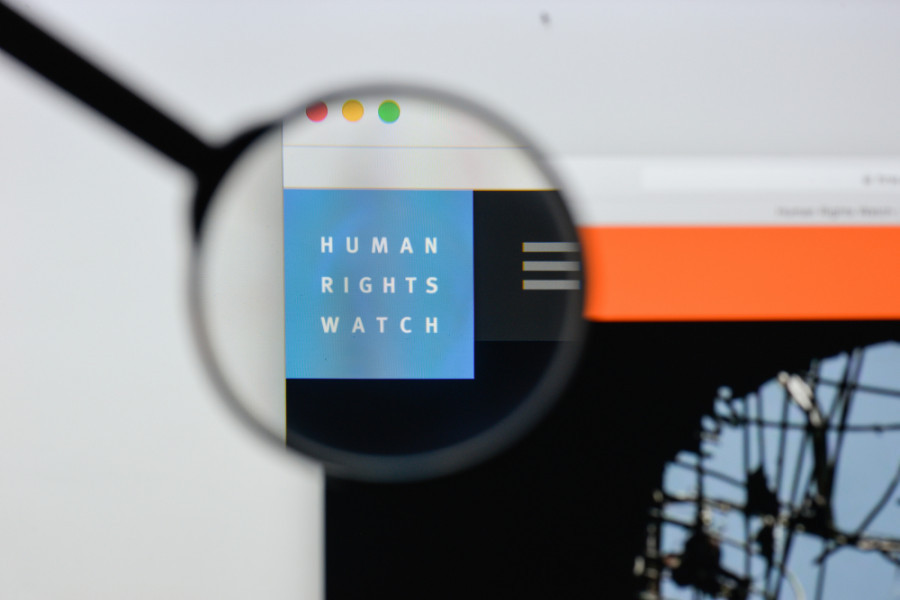National
Human Rights Watch urges Bhutan government to free ‘political prisoners’
While the total number of political prisoners in Bhutan remains unknown, Human Rights Watch said it collected information relating to 37 current prisoners who were first detained between 1990 and 2010.
Post Report
The Bhutanese government should revoke the convictions of several dozen political prisoners who have been jailed for decades following unfair trials and alleged torture and release them, Human Rights Watch said on Tuesday.
Bhutanese courts have convicted and imposed long sentences on peaceful political and anti-discrimination activists and others arrested for a range of alleged national security offenses.
While the total number of political prisoners in Bhutan remains unknown, Human Rights Watch said it collected information relating to 37 current prisoners who were first detained between 1990 and 2010.
Most of them are held separately from other inmates, in poor conditions, with many suffering physical or psychosocial (mental health) ailments, and are denied regular communication with their families.
The cases originate from before 2008, when Bhutan transitioned from an absolute monarchy to a constitutional one, the rights body noted, adding those still imprisoned face long sentences, including life in prison.
Bhutanese activists have appealed to King Jigme Khesar Namgyel Wangchuck to grant amnesty to these prisoners.
“Bhutan’s publicly promoted principle of ‘Gross National Happiness’ doesn’t account for these wrongfully convicted political prisoners who have been behind bars for decades,” said Meenakshi Ganguly, South Asia director at Human Rights Watch, in a statement. “The Bhutanese authorities should recognise the harm done to these long-serving prisoners and their families and urgently remedy the situation.”
The vast majority of this group—32 prisoners—belongs to Bhutan’s Nepali-speaking Lhotshampa community, which has faced decades of discrimination and abuse from the Bhutanese government.
In the early 1990s, over 90,000 Lhotshampas were forced to live as refugees in Nepal, following a crisis precipitated by discriminatory laws, disputed citizenship regulations, and widespread abuses by Bhutan’s security forces. Most of the refugees have since been resettled in the United States, Canada, and Australia.
“Most of these inmates, who are officially considered ‘political prisoners,’ were convicted under the draconian and vaguely worded 1992 National Security Act,” the HRW said. “The Bhutanese law defines a political prisoner as ‘any person convicted for conspiring, attempting, soliciting, abetting or committing offenses against the Tsa-Wa-Sum (king, country and people)’.”
In all 37 cases identified by Human Rights Watch, this is the primary allegation that led to their conviction. At least 24 are serving life sentences without the possibility of parole, while the remainder are serving terms of between 15 and 43 years.
Former and current prisoners, and relatives of prisoners, said that the authorities severely tortured detainees both to extract confessions and to punish them, and that they had no legal representation at their trials.
“The physical torture [in custody] was merciless, so we had no option but to present ourselves to the court based on their [security forces] demands and their statements,” the HRW quoted a prisoner convicted of treason and terrorism as saying. “Then the district court declared a sentence of life imprisonment for us. We weren’t given any legal help.”
Many families of prisoners said that they have not been provided with any official documentation and still do not know why their relatives were convicted. Former prisoners were also sometimes unable to describe in common or legal terms the offense for which they themselves were convicted and for which they had served long sentences.
Dambar Singh Pulami, for one, was arrested in 2001 when he returned to Bhutan from a refugee camp in Nepal to “see his property,” activists said. He was sentenced to 43 years in prison for “extortion, kidnapping, murder and subversive activities.” He suffers from severe ill-health, which caused him to be hospitalised in May 2022.




 8.99°C Kathmandu
8.99°C Kathmandu














